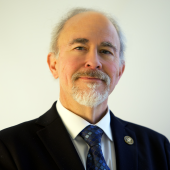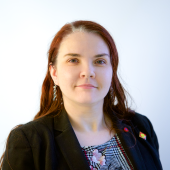
Researching Colonial New England Ancestors
As a group, 17th-century New Englanders are arguably one of the most studied groups on the planet, and thus descendants are blessed with a multitude of resources. In many cases, town vital records, church, colony, court, probate, land, military, and tax records not only have survived, but have been abstracted and published. And yet, early New England is not without its challenges and idiosyncrasies. This five-week course will discuss the settlement of and migrations within New England, how to locate and utilize original and published records, and strategies for breaking down brick walls. This course will cover the colonial period (1620–1776) in the area of what is today Connecticut, Maine, Massachusetts, New Hampshire, Rhode Island, and Vermont.
May 1 - Class 1: Settlement of Colonial New England,
presented by Sheilagh Doerfler
From Plymouth Colony to the frontiers of northern New England, early migration and settlement patterns are complex. By understanding how and why New Englanders settled where they did, you will understand the development of the town as the focus of New England life and genealogical records. This understanding may also inform genealogical conclusions about your own ancestors.
May 8 - Class 2: Using Town and Church Records in Colonial New England,
presented by James Heffernan
Town and church records from New England can contain a wealth of genealogical information. These records can contain records of births, marriages, burials, mortgages, name changes, and more that can help you fill in the details of your ancestor's life. In this class we’ll delve into these important resources for New England and demonstrate how you can get the most out of these records for your own family history.
May 15 - Class 3: Using Probates and Deeds,
presented by Melanie McComb
Probate records and deeds are crucial—but sometimes overlooked—sources for family historians. Hiding in these legal documents may be full family groups, immediate and extended family connections, origins, and even maiden names. These sources may also be used as vital record substitutes and provide a glimpse into your ancestor’s property and worldly possessions. In this class you’ll learn how to understand, locate, and leverage these records in your family history research.
May 22 - Class 4: Using Records of Colonial Conflicts,
presented by David Allen Lambert
From early conflicts to America’s fight for independence, military service was a part of life for many early New Englanders. Chief Genealogist David Allen Lambert will provide historical context for the major colonial conflicts, discuss what records are available to family historians, and how to compile the story of your early veteran ancestors.
May 29 - Class 5: Determining Ancestral Origins,
presented by Robert Battle
One of the hardest tasks a family historian can embark upon is to “jump across the pond” and discover exactly where their ancestor came from. This can be particularly difficult when tracing colonial ancestors, as passenger lists were not required before 1820. In this class, you’ll learn how to utilize available records and strategies to trace your ancestors’ origins before arriving in the New World.





